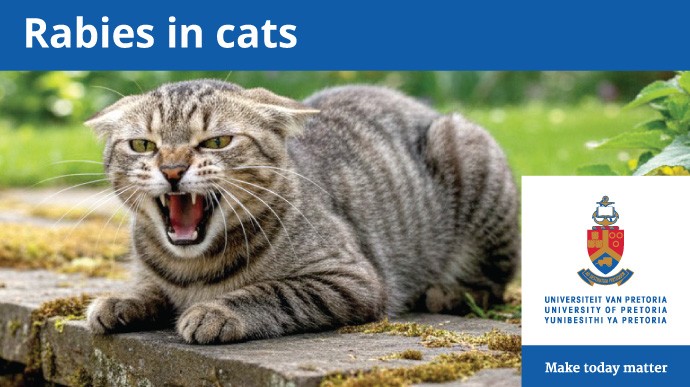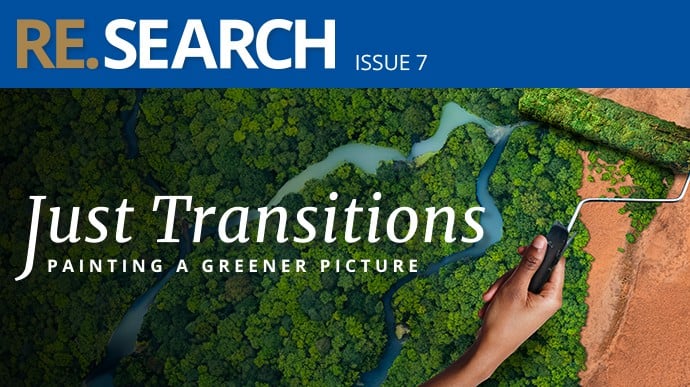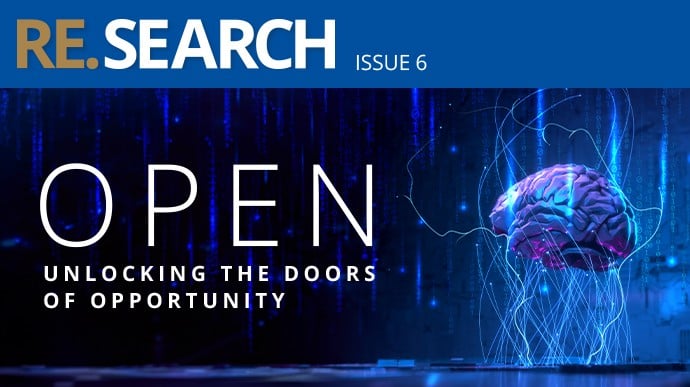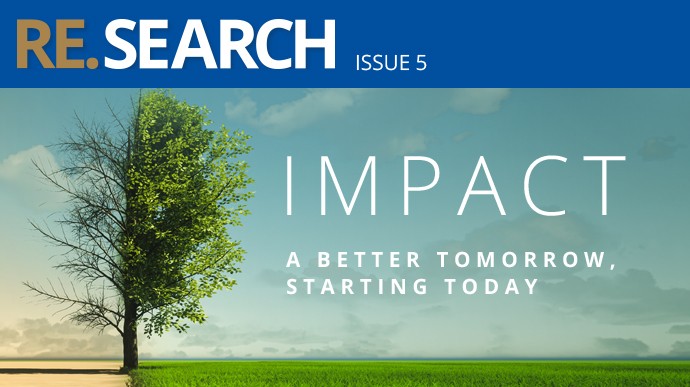 Story
Story
This edition is curated around the concept of One Health, in which the University of Pretoria plays a leading role globally, and is based on our research expertise in the various disciplines across healthcare for people, the environment and animals.
 Infographic
Infographic
Infected cats excrete the rabies virus in their saliva for several days before symptoms kick in. A bite or scratch from a cat can leave deep puncture wounds, through which the virus can enter a person’s bloodstream. Learn more about other possible symptoms of rabies in cats and what to do if you suspect your cat may be infected.
 Story
Story
Many associate human rabies infections with infected domestic dogs. Yet, like most mammals, cats can also pass this deadly viral disease on to people. That is why pet owners should ensure that their feline pets receive regular rabies vaccinations, according to Professor Claude Sabeta of the Department of Veterinary Tropical Diseases in the Faculty of Veterinary Science at the University of...
 Story
Story
Rabies predominantly affects marginalised populations. Although effective human vaccines and immunoglobulins exist, the immunoglobulins are often inaccessible or unaffordable to those in need. An international drive to develop alternative post-exposure prophylaxis (PEP) biological alternatives, led by the World Health Organisation, is underway.
 Story
Story
The articles in this edition showcase work from all nine of our faculties, and underscore our University’s slogan ‘Make today matter’. RE.SEARCH has been named South Africa's top corporate publication as the winner of the 2024 SA Publication's Forum Awards. It is a runner up and finalist in the Excellence category for Communication (runner up), Design and Photography (finalist) and the...
 Story
Story
In a study that signals potential reproductive and health complications in humans, now and for future generations, researchers at the University of Pretoria and Canada’s McGill University and Université Laval have concluded that toxins in the environment, notably DDT, modify the sperm epigenome at sites potentially transmitted to the embryo at conception.
 Story
Story
This edition explores the theme of ‘Just Transitions’ which is generally characterised by ideas of sustainability and the greening of the economy, and supported by the ideas of resistance, rethinking and restructuring society for a better and more equitable future. As one of the most impactful producers of research in South Africa, UP has several specialised research teams that are on the...
 Story
Story
This issue features research from all of the University of Pretoria's nine faculties and our business school, the Gordan Institute of Business Science (GIBS) and shows how our research is opening a new world and a better future.
 Story
Story
This issue of RE.SEARCH looks at the impact of the University of Pretoria's research from early childhood interventions and the use of traditional medicines for holistic nursing to the role of women in peacekeeping efforts. The issue also provides insight into the critical question of coal power supply and how it will affect the economic opportunities of communities in the future.
Copyright © University of Pretoria 2025. All rights reserved.
Get Social With Us
Download the UP Mobile App